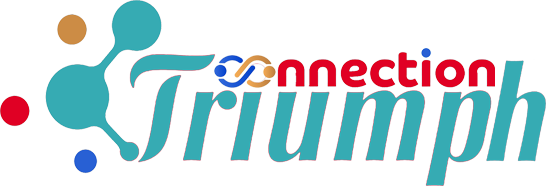In the ever-expanding digital ecosystem, questions of privacy, consent, and monetization have become central to conversations about online platforms. The emergence of sites like Fapello.su highlights not only shifts in the way people consume digital content but also the profound ethical and cultural dilemmas at play in today’s modern content economy. By 2025, debates around platforms such as Fapello.su have intensified, particularly in relation to issues of personal data, content sharing, and digital boundaries.
This article takes a deep dive into Fapello.su, examining how it operates within the broader online content landscape, what it reveals about digital consent, and why it has become a flashpoint in conversations about internet privacy and the economics of online creativity.
What Is Fapello.su?
Fapello.su is a content-sharing platform that exists in the shadowy areas of the digital economy. Unlike mainstream streaming or subscription-based models such as Netflix or Patreon, Fapello.su typically features leaked, redistributed, or mirrored content—much of it often pulled from paywalled services or subscription platforms.
While it may present itself as just another online hub for digital media, its model is deeply tied to the complexities of digital ownership and consent. Users who upload or access content here are often bypassing traditional consent frameworks, exposing tensions between the demand for free media and the rights of content creators.
The Content Economy and Its Challenges
In the past decade, the content economy has undergone a dramatic transformation. Platforms like OnlyFans, Patreon, YouTube, and TikTok have empowered individuals to monetize their creativity, building sustainable income streams directly with audiences. However, the rise of platforms such as Fapello.su underscores three key challenges:
-
Leak Culture
Paywalled content is often leaked, redistributed, and consumed without the creator’s permission, undermining their livelihood. -
Digital Consent
The line between public sharing and private control is blurred online. Platforms like Fapello.su thrive in this ambiguity, often raising concerns over whether creators ever truly gave consent for their work to be shared. -
Economic Pressure
Subscription fatigue has pushed many users toward free alternatives, creating fertile ground for sites like Fapello.su to attract traffic despite questionable practices.
Privacy in the Age of Fapello.su
At the core of the conversation surrounding Fapello.su is digital privacy. Content creators who rely on subscription models frequently find their work copied and distributed without consent. This creates a ripple effect:
-
Loss of Control: Creators lose agency over how, where, and by whom their work is viewed.
-
Data Exposure: Both creators and consumers face risks when engaging with unofficial platforms that may track user behavior or expose personal data.
-
Reputation Risks: When content is shared outside of its intended context, it can impact a creator’s personal and professional life.
In a world increasingly aware of data sovereignty, platforms like Fapello.su expose the vulnerabilities of creators in the digital marketplace.
The Question of Digital Consent
Consent in the digital age extends beyond physical interactions—it covers who gets to view, copy, or distribute one’s work. With sites like Fapello.su, consent is often overridden in pursuit of demand.
This raises larger questions:
-
Does paying for content grant unlimited rights to redistribute it?
-
What legal frameworks exist to protect creators against unauthorized sharing?
-
How can creators assert consent in ecosystems where control is decentralized?
For many, Fapello.su represents a breach of digital consent, fueling conversations about strengthening online protections and accountability.
Legal and Ethical Implications
From a legal standpoint, platforms like Fapello.su often operate in gray or outright illegal zones, depending on jurisdiction. Copyright laws theoretically protect creators, but enforcement is complicated when content is hosted on offshore servers or shared through decentralized networks.
Ethically, these platforms challenge society to rethink its relationship with content:
-
Is consuming leaked or redistributed media an act of theft?
-
Do consumers bear responsibility for the economic harm to creators?
-
Can there be a balance between free access and creator rights?
Why Platforms Like Fapello.su Persist
Despite legal crackdowns and ethical critiques, platforms like Fapello.su persist for several reasons:
-
Demand for Free Content
Users often prefer free access, even if it comes with lower quality, risks, or questionable legality. -
Anonymity of the Internet
Uploaders and users can hide behind anonymous profiles, making accountability difficult. -
Decentralized Hosting
Many such platforms operate under shifting domain names and mirror sites, evading takedowns. -
Global Accessibility
Restrictions in one region can be bypassed by users in another, making enforcement nearly impossible at a global scale.
The Modern Content Economy: A Double-Edged Sword
The rise of platforms like Fapello.su highlights the paradox of today’s modern content economy:
-
On one hand, digital tools have democratized content creation, enabling individuals to monetize their work directly.
-
On the other, the same digital infrastructure enables unauthorized redistribution, undermining creators’ economic autonomy.
This duality forces us to confront a difficult truth: the internet has created unprecedented opportunities but also unprecedented challenges for protecting digital labor and consent.
How Creators Are Responding
In response to the risks posed by platforms like Fapello.su, creators are experimenting with new strategies:
-
Watermarking Content: Subtle branding or digital tagging helps identify leaked material.
-
Legal Action: Some pursue copyright claims, though enforcement is resource-intensive.
-
Community Engagement: Building strong, loyal fan bases encourages direct support over piracy.
-
Platform Advocacy: Many creators call for subscription platforms to invest in stronger anti-leak technologies and user protections.
These measures are not foolproof but represent efforts to reclaim autonomy in a precarious digital landscape.
The Consumer’s Role
While much attention is focused on platforms and creators, consumers play a central role in shaping the ethics of the digital content economy. Viewers can:
-
Choose Ethical Consumption: Supporting creators through official channels ensures sustainability.
-
Understand Consent: Recognizing that leaked or redistributed content often violates creator consent.
-
Protect Themselves: Avoiding unofficial platforms reduces risks of malware, scams, and data theft.
Ultimately, consumer decisions directly influence whether platforms like Fapello.su thrive or decline.
The Future of Digital Privacy and Content Sharing
Looking ahead, several trends may shape the future:
-
Blockchain Solutions
New technologies could allow creators to verify ownership and control distribution of their content. -
Global Regulation
International cooperation may lead to stronger protections against unauthorized redistribution. -
Cultural Shifts
As awareness grows, consumer attitudes toward leaked content may evolve, emphasizing respect for digital consent. -
Platform Innovation
Subscription-based platforms may adapt by offering better security, fairer pricing, and more equitable systems for both creators and fans.
Conclusion
By 2025, Fapello.su has become more than just another content-sharing platform—it is a symbol of the tensions between free access, creator rights, privacy, and consent in the modern digital economy. It represents both the opportunities and vulnerabilities of online creativity, exposing how fragile digital ownership can be in an interconnected world.






